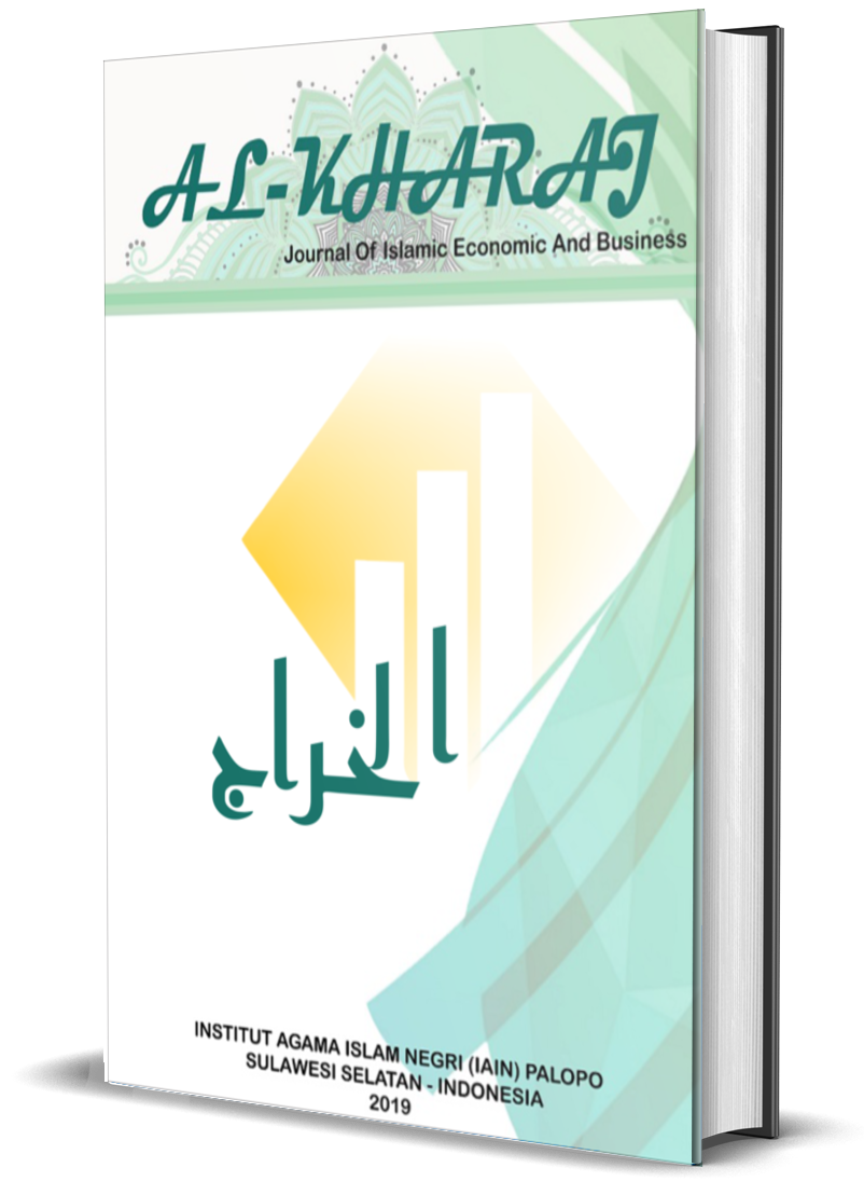Communal Accounting in Minangkabau Culture: An Ethno-Cultural Study of Badantam Practices
DOI:
https://doi.org/10.24256/kharaj.v7i4.8009Keywords:
Accounting Information System (AIS), Management Accounting SystemAbstract
This study examines the practice of Badantam, a tradition of financial mutual aid in Minangkabau wedding ceremonies, particularly in Nagari Ketaping, Padang Pariaman Regency. This tradition functions not only as a mechanism for pooling funds but also reflects the principles of customary-based accounting implemented simply yet imbued with cultural values. The primary focus of this research is to explore the accounting system used in Badantam, specifically a cash-basis system, in which recording occurs only for transactions received in cash or cash equivalents at the time of the event. A qualitative approach with ethnographic methods was employed. Data were collected through in-depth interviews, participant observation, and documentation, involving informants such as customary leaders, religious figures, community leaders, the wedding organizing family, and surrounding community members. Data analysis followed the interactive model of Miles, Huberman, and Saldana, while data validity was ensured through triangulation of sources, techniques, and time. The findings indicate that Badantam operates through four main stages: collection, recording, announcement, and supervision. During the recording stage, all contributions— whether cash or gold converted to cash value—are formally documented in a special ledger according to sequence and kinship category. This demonstrates the practical application of cash-basis accounting, where recognition occurs only upon actual receipt of funds. Furthermore, transparency is ensured through public announcement of each contribution via loudspeaker; accountability is reflected in clear reporting accessible to all; and supervision is implemented collectively by both the committee and community through direct verification of records and physical cash.This, Badantam can be viewed as an embodiment of cultural accounting, integrating cash-basis principles with the values of transparency, accountability, and collective oversight. This tradition demonstrates that modern accounting principles have long been embedded in Minangkabau customary systems, grounded in local wisdom, social solidarity, and internalized religious values.
Keywords: Badantam, Communal Accounting, Minangkabau Culture
References
Aini, Welza. Alya, Hustrida Septia. Noviyanti ,Silvina. Chan, Faizal. (2024) Analisis Budaya Dalam Tradisi Perkawinan di Adat Minangkabau. Inovatif Journal of Social Science Research.
Amin, Ibnu. (2022). Implementasi Hukum Islam dalam Falsafah Adat Basandi Syarak, Syarak Basandi Kitabulah di Minangkabau.
Cantika, Dewi. (2024). Gender and Social Power : Anthropological Analysis of the Role of Women in Traditional Minangkabau Society. Journal of Demography, Etnography and Social Transformation
Creswell, J. W., & Poth, C. N. (2018). Qualitative Inquiry and Research Design: Choosing Among Five Approaches (4th ed.). Thousand Oaks, CA: Sage Publications.
Departemen Agama RI. (2005). Al-Qur’an dan Terjemahannya. Jakarta: Departemen Agama Republik Indonesia.
Hidayat, T., & Fauziah, N. (2023). “Analisis Prinsip Akuntansi dalam Praktik UMKM di Indonesia.” Jurnal Akuntansi Aktual, 10(1), 45–56.
Kamayanti, A. (2016). Metodologi Penelitian Kualitatif Akuntansi: Pengantar Religiositas Keilmuan. Malang: UB Press.
Moleong, L. J. (2017). Metodologi Penelitian Kualitatif. Bandung: PT Remaja Rosdakarya.
Mulawarman, A. D. (2010). Menggagas Akuntansi Multiparadigma: Epistemologi, Teori, dan Riset. Malang: UB Press.
Kamayanti, A., & Fitri, I. (2021). “Paradigma dan Metodologi Penelitian Kualitatif Akuntansi: Refleksi atas Religiusitas dan Budaya.” Jurnal Akuntansi Multiparadigma, 12(2), 210–225
Komala, A. R. (2019). “Pengaruh Budaya Organisasi terhadap Praktik Akuntansi di Indonesia.” Jurnal Riset Akuntansi dan Keuangan, 7(2), 210–225
Natalia Manullang Berliana.(2024). Pergelaran pesta budaya Njuah sebagai Identitas Etnik Pakpak di Kelurahan Sidikalang Kabupaten Dairi. Nusantara JurnalIlmu Pengetahuan Sosial.
Nugroho, A. (2020). “Peran Prinsip Akuntansi dalam Transparansi Laporan Keuangan Organisasi Non-Profit.” Jurnal Ekonomi dan Bisnis, 23(3), 250–262.
Pratiwi, R., & Hidayat, A. (2020). “Studi Kualitatif tentang Praktik Akuntansi pada UMKM Berbasis Kearifan Lokal.” Jurnal Riset Akuntansi dan Bisnis, 20(2), 135–148.
Putri, R., & Siregar, E. (2020). “Prinsip-Prinsip Akuntansi dalam Tata Kelola Keuangan BUMDes.” Jurnal Riset Akuntansi dan Bisnis, 20(2), 112–124.
Sopanah, Ana. Bahri Syamsul. (2025). Akuntansi Berbasis Kearifan Lokal Menyatukan Tradisi dan Praktik Modern. Scopindo Media Pustaka.
Sari, D. M., & Yuliani, R. (2022). “Implementasi Prinsip-Prinsip Akuntansi pada Lembaga Keuangan Mikro Syariah.” Jurnal Riset Akuntansi dan Keuangan Indonesia, 7(2), 134–148.
Sudapi, Suherman. Ermadani, Suci. Desta, Putra, Pingki. Khaitunisa, Ananda. (2025). Peningkatan Pemahaman Pancasila Sebagai Dasar Nilai Pengembangan Ilmu Melalui Kegiatan Sosialisasi Aturan Adat Minangkabau “Sumbang Duo Baleh” di Sekolah Dasar Negeri 14 Kota Padang. Jurnal Ilmiah Pengabdian Pada Masyarakat. Journal Fasya UIN IB.
Sugiyono. (2019). Metode Penelitian Kualitatif, Kuantitatif, dan R&D. Bandung: Alfabeta
Triyuwono, I. (2015). Akuntansi Syariah: Perspektif, Metodologi, dan Teori. Jakarta: Rajawali Pers.
Wicaksono, A., & Pratiwi, L. (2021). “Budaya Lokal dan Prinsip Akuntansi: Studi pada Koperasi Desa.” Jurnal Akuntansi Multiparadigma, 12(2), 301–315
Yuniarti, Y. (2016). “Akuntansi dalam Perspektif Budaya Lokal.” Jurnal Akuntansi Multiparadigma, 7(3), 400–412.
Downloads
Published
How to Cite
Issue
Section
Citation Check
License
Copyright (c) 2025 Fitri Yulianis, Peregki Susanto, Abror, Nurul Asma Akmal, Erniwati

This work is licensed under a Creative Commons Attribution-ShareAlike 4.0 International License.
Authors retain copyright and grant the journal right of first publication with the work simultaneously licensed under a Creative Commons Attribution-ShareAlike 4.0 International License. In line with the license, authors are allowed to share and adapt the material. In addition, the material must be given appropriate credit, provided with a link to the license, and indicated if changes were made. If authors remix, transform or build upon the material, authors must distribute their contributions under the same license as the original.









